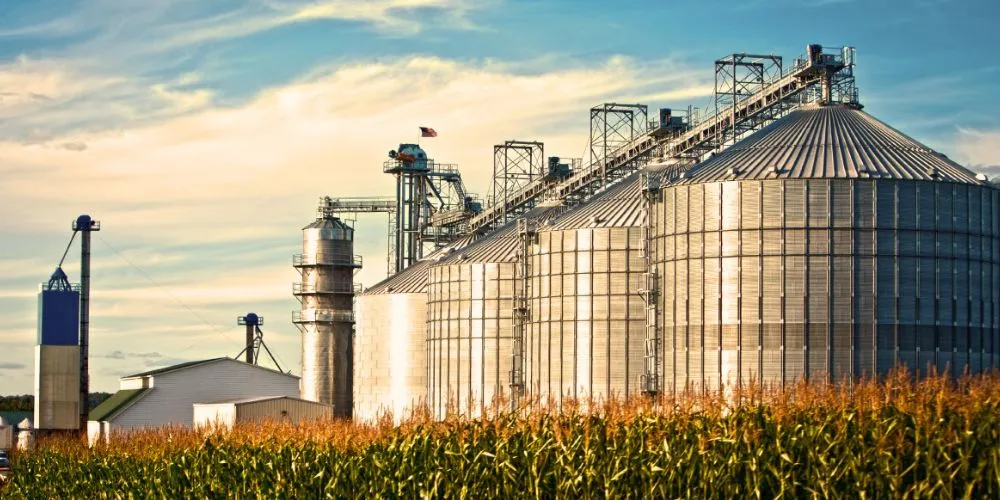Biofuels, derived from organic materials such as plants and waste, offer a promising avenue for sustainable energy production. This article explores the historical roots of biofuels, their various types and production processes, their applications across sectors, and their pivotal role in fostering a greener, more sustainable energy landscape.
The Historical Evolution of Biofuels
The roots of biofuels can be traced back to ancient civilizations, where biomass materials such as wood and animal dung were used for heating and cooking. However, the modern era has witnessed the systematic development of biofuels as a viable alternative to conventional fossil fuels.
First Generation Biofuels – The Dawn of Ethanol
The production of biofuels on an industrial scale began with the advent of ethanol production. In the early 20th century, Henry Ford predicted a future where automobiles could run on ethanol, leading to the mass production of bioethanol from crops such as corn.
Biodiesel Emergence – Utilizing Vegetable Oils
The development of biodiesel gained momentum in the 1970s in response to the oil crisis. Biodiesel, typically produced from vegetable oils or animal fats, became a viable alternative for diesel engines, further expanding the scope of biofuels.
Types and Production Processes of Biofuels
Biofuels encompass a variety of types, each with its unique production process, enabling flexibility in sourcing and applications.
Bioethanol – Fermentation and Distillation
Bioethanol, an alcohol-based biofuel, is primarily produced by fermenting and distilling sugars derived from crops such as sugarcane, corn, or switchgrass. The process involves breaking down the complex carbohydrates in biomass into simple sugars, fermented by microorganisms to produce ethanol.
Biodiesel – Transesterification of Oils
Biodiesel is typically produced through transesterification, in which triglycerides from vegetable oils or animal fats react with alcohol to produce fatty acid methyl or ethyl esters. The resulting biodiesel can be used as a direct replacement or blending agent for traditional diesel fuel.
Second and Third-Generation Biofuels – Advanced Feedstocks
Second-generation biofuels involve the utilization of non-food crops, lignocellulosic materials, and waste products. This category includes advanced processes like cellulosic ethanol production and algae-based biofuel extraction. Third-generation biofuels explore innovative approaches, such as harnessing microorganisms or genetically modified crops, to improve efficiency and reduce environmental impacts.
Biofuels in Various Sectors
Biofuels find applications across diverse sectors, contributing to cleaner energy solutions and reducing dependence on fossil fuels.
Transportation – Fuels for the Road, Sky, and Sea
Biofuels are increasingly being incorporated into the transportation sector as alternative fuels for cars, airplanes, and ships. Bioethanol and biodiesel blends, as well as advanced biofuels, offer a greener option for reducing greenhouse gas emissions in the transportation industry.
Aviation Biofuels – Clear Skies for Sustainable Flights
The aviation industry has seen promising developments in biofuels, with airlines experimenting with sustainable aviation fuels (SAFs). These fuels, derived from bioethanol, biodiesel, or advanced biofuel feedstocks, aim to reduce the carbon footprint of air travel.
Industrial Processes – Greening Manufacturing
Biofuels play a role in greening industrial processes by delivering an alternative to traditional fossil fuels in cement, steel, and chemical manufacturing sectors. Biomass-derived heat and power can replace conventional fuels, reducing emissions and creating a more sustainable production chain.
Challenges and Opportunities in Biofuel Production
While biofuels offer significant environmental benefits, their production challenges include land use concerns, competition with food crops, and technological barriers.
Land Use and Food Security – Striking a Balance
The production of biofuels has raised concerns about the potential conflict with food crops for arable land. Striking a balance between biofuel production and food security requires sustainable land-use practices and the development of non-food feedstocks.
Technological Advancements – Unlocking Efficiency
Ongoing research and development are crucial for overcoming technological barriers and enhancing the efficiency of biofuel production processes. Innovations in advanced biofuel technologies, such as synthetic biology and precision agriculture, are key to increasing yields and reducing environmental impacts.
Future Prospects for Biofuels
As the world transitions toward a low-carbon future, biofuels are poised to play a central role in achieving sustainable energy goals.
Policy Support – Driving Market Expansion
Government policies and motivations play a critical role in fostering the growth of the biofuels market. Supportive regulations, subsidies, and mandates can encourage investment in biofuel production and consumption, accelerating the transition to a more sustainable energy landscape.
Technological Innovation – Unlocking New Potentials
Continued advancements in biotechnology, process optimization, and feedstock diversification will unlock new potential for biofuels. The bioenergy sector is poised for transformative breakthroughs, from algae-based biofuels to synthetic biology approaches.
Global Collaboration – Addressing Challenges Together
International collaboration is essential to addressing the global challenges of biofuel production. Shared research efforts, knowledge exchange, and coordinated policies can contribute to sustainable biofuel practices on a global scale.
Conclusion
Biofuels represent a dynamic and evolving solution in the pursuit of sustainable energy. From its historical roots to the diverse array of modern biofuel types, the bioenergy sector continues to evolve, addressing challenges and seizing opportunities to build a greener, more sustainable future.
As technological advancements, policy support, and global collaboration drive the biofuels industry forward, these renewable energy sources will play an increasingly vital role in decreasing carbon emissions and transitioning toward a more sustainable energy paradigm.





